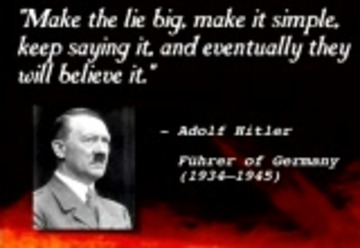
Dealing With Truth Issue—What Is Capital T Truth?
A cosmic struggle between light and darkness, error and truth has been going on in this earth ever since the snake in the tree made his debut and deceived the first humans into giving up the Truth of Elohim for the lie of the devil. How is this struggle between the forces of light and darkness manifesting itself on planet today, and what can the saints do about it?
Two categories of people exist in this cosmic struggle. Those who adhere to Truth who will pay a high cost—they will lose their lives and gain the world. Then there are those people who reject Truth will pay even a higher cost—they will gain the world and lose their lives, so says Yeshua who lost it all for us.
Capital T Truth is at the epicenter of this struggle. Every human is confronted with a choice with regard to Truth. Will he or she seek and follow that Truth or reject it? To not make a choice is to reject Truth.
What is that Truth?
Yeshua the Messiah, the Living Torah-Word of Elohim, was the Light of Truth personified who came to pierce the darkness of this world.
In the beginning was the Word, and the Word was with Elohim, and the Word was Elohim… And the Word became flesh and dwelt among us, and we beheld His glory, the glory as of the only begotten of the Father, full of grace and truth. (John 1:1, 14)
In Him was life, and the life was the light of men. And the light shines in the darkness, and the darkness did not comprehend it. (John 1:4–5)
That was the true Light which gives light to every man coming into the world. He was in the world, and the world was made through Him, and the world did not know Him. He came to His own, and His own did not receive Him. But as many as received Him, to them He gave the right to become children of Elohim, to those who believe in His name: who were born, not of blood, nor of the will of the flesh, nor of the will of man, but of Elohim. (John 1:10–13)
Sadly, nearly everyone around Yeshua totally rejected him including his own disciples and brothers up to his crucifixion. This is because each person has to face their own dark night of the soul: will they adhere to the Truth no matter what, or will they cave in to the extreme pressures of the world, the flesh and the devil that will be exerted against them?
Each person faces their dark night of the soul at different times. It may be the lure of money, the need social acceptance and the need to be recognition, peer pressure (family, friends, job, school), lust for sexual fulfilment and need for “love”, or whatever, the fear of death—of losing something important, of rejection, social ostracization. No one knows when their dark night of the soul will come when they will be forced to stand for Truth. Jacob experienced his when facing with death, and he had to wrestle with himself and Yeshua. Moses spent forty years in the wilderness being tested, then had the burning bush experience, then had to circumcise his sons. His wife left him over this and his ministry calling. He had to make the choice to follow YHVH or his wife. Yeshua faced his dark night in the Garden of Gethsemene (the olive press), and the disciples faced theirs at Yeshua’s arrest. When our time comes, will we stand for Truth, or will we cave or acquiesce to the pressure?
The events surrounding the crucifixion revealed the metal of each person with regard to Yeshua. Either people flat out opposed Yeshua, the Truth (the Jews and Romans), or abandoned the Truth when forced to make the hard decisions requiring to stand for the Truth (the disciples).
The Jewish mob was opposed to Yeshua and yelled, “Crucify him” , while the Pilate, the Roman, was indifferent. He caved in to the pressure of the mob for political expediency. It was advantageous for him and his position to keep the peace no matter the cost. For him, it was about maintaining power and prestige in the eyes of Rome. The godless mob screaming, “Crucify him!” was the beginning of the modern manifestation of wokeism and its bastard child, cancel culture. Kill the truth that is a is a threat to your own subjective, feeling-based truth.
Yeshua’s disciples, on the other hand, faced their own dark night of the soul. How would they respond to Truth issues? Their initial response, like many Christians in our day, was to grow weary in the face of adversity. The disciples fell asleep in the garden, then they eventually abandoned Yeshua. Peter even denied him.
In our day, Truth is crying aloud in the streets for those who have ears to hear. Most people stop their ears from hearing the Truth because it is to disturbing and life-changing. The mass media, our educational systems, civil government, the societal culture in general is not only stopping its collective ears, but yelling and screaming like petulant children throwing a tantrum trying to drown out the voice of Truth originating from our Father in heaven. The mob is yelling, “Crucify him” or, in reality, “Crucify Truth!”
Questioning Truth
Continue reading


